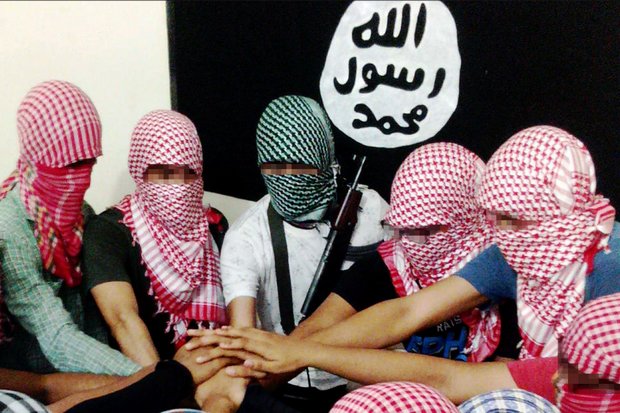
Three cities in separate countries hit by suspected Islamic State terrorists in the past week dealt a tumultuous blow to safety in those regions, heightening fears of the militants' capabilities and where they could strike next.
The reign of terror includes Sunday's suicide bombing in Baghdad that killed more than 100 people, the weekend hostage-taking at a restaurant in the Bangladesh capital of Dhaka that left 28 dead, including six attackers, and last Tuesday's bombing at the Istanbul airport that killed 44.
The massacres demonstrate that Islamic State, also known as IS or Isis, has established cells around the world — and is still capable of heinous attacks despite its recent setbacks on the battlefield.
"Islamic State is losing territory in Iraq and Syria, but it is still a formidable opponent and very dangerous," Bruce Riedel, a former CIA officer and an analyst with the Brookings Institution, said on Sunday.
The militant group claimed responsibility for the assaults in Baghdad and Dhaka, and is strongly suspected of being responsible for the Istanbul bombing.
Since IS has suffered losses over the past two years in conventional military operations, the group is now focusing on guerilla warfare and terrorism, said Daniel Byman, a professor at Georgetown University's Walsh School of Foreign Service.
"We've already seen the number of foreign fighters going to Iraq and Syria decline. From Islamic State's point of view, these are desperate attacks. But they are successful in their own right and do indicate that we will see more attempts," said Mr Byman, also a senior fellow at the Centre for Middle East Policy at the Brookings Institution.
He added that the more desperate IS becomes, the more the group will rely on amateurs.
"Isis has tens of thousands of individuals that are scattered not just in the Middle East but also to West Africa, to Southeast Asia, and beyond," CIA director John Brennan told the Council on Foreign Relations last week.
IS presence in other parts of Asia has also been growing, though its presence in the Middle East is larger. IS commands about 6,000 fighters in Libya.
Baghdad
Sunday's attack in Baghdad — the deadliest in a year and one of the worst in more than a decade — reflects a shift in strategy for the IS. As the militant group has been pushed out of territory it controls in Iraq and Syria, it has resorted to more conventional terror attacks against civilian targets.
The truck bombing comes one week after US-backed Iraqi forces recaptured Fallujah, a city about 56km west of the capital, which was a major defeat for the terrorist organisation.

This is the aftermath of the car bomb in Baghdad that killed more than 100 Iraqi Shia Muslims and destroyed this fashionable shopping street. (AP photo)
Iraq had hoped that driving the militants out of Fallujah would help prevent the IS from getting bombs into Baghdad, since Fallujah straddles major roads into the capital. The US air campaign had also expanded airstrikes to target car bomb factories in an effort to stop high-profile terror attacks, which pose a risk to the stability of the US-backed Iraqi government.
Dhaka
A 10-hour siege ended on Saturday at a restaurant in the heart of the capital city's diplomatic quarter with 20 hostages and two policemen dead. Hostages unable to quote from the Quran were pulled aside and hacked or knifed to death. Bangladesh commandos killed six of the terrorists.
"In the case of Isis and its connection to international terrorism in Bangladesh, they have mentioned the country several times in Dabiq, their online journal," Sajjan Gohel, international security director at the Asia Pacific Foundation, told CNN. "They talked about the fact that they were going to carry out more attacks, they were going to increase the tempo, and they were calling for volunteers from Bangladesh to join them."
The IS has established a presence in Bangladesh, a predominately Muslim country, as it has in other parts of the world, said Patrick Johnston, a terrorism analyst at RAND Corp. The group has been able to build its presence in places like Bangladesh by exploiting local grievances and weak governments, Mr Johnston said.
- Portraits of the dead: Victims of the Bangladesh attack
Istanbul
Three suspected IS terrorists blew themselves up late last Tuesday at Ataturk International Airport.
Residents say they were already bracing for another attack like this to happen again in Turkey, which has endured nearly 20 terrorist attacks that have killed some 300 people and injured over 1,000 more in the past year.
"Almost every month since June 2015, there have been suicide bombings all over the country," said Ege Memis, 24, a student. "The only protection people have is their luck."
The growing threat heightens the risk of destabilising Turkey, a Nato member and US ally in the war against the IS.
"Turkey has been very vulnerable to terrorism," said Bulent Aliriza, an analyst at the Centre for Strategic and International Studies.
"Turkey has been involved in balancing act for a year now. It is cooperating with the United States and trying to prevent Isis from retaliating." (©2016 USA Today)